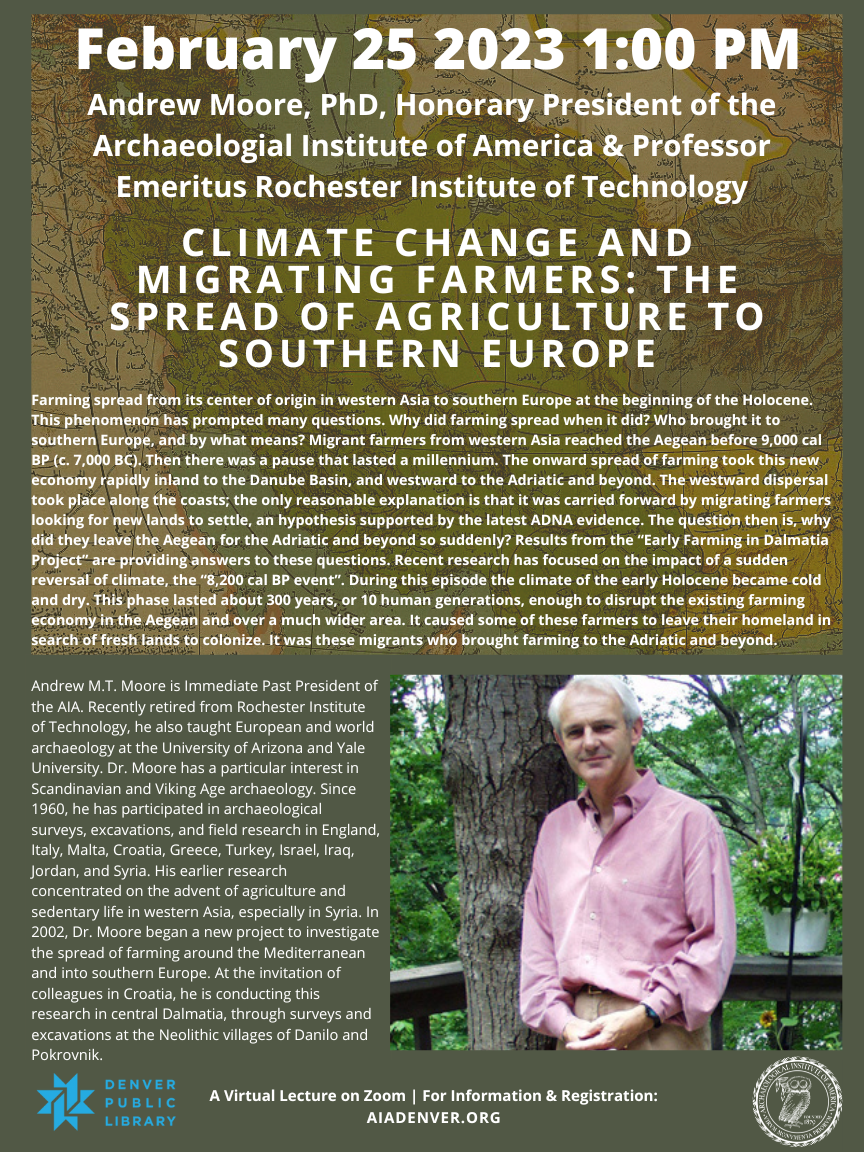
This is an online event.
Sponsored by: AIA-Denver Society and the Denver Public Library

Abstract:
Farming spread from its center of origin in western Asia to southern Europe at the beginning of the Holocene. This phenomenon has prompted many questions. Why did farming spread when it did? Who brought it to southern Europe, and by what means? Migrant farmers from western Asia reached the Aegean before 9,000 cal BP (c. 7,000 BC). Then there was a pause that lasted a millennium. The onward spread of farming took this new economy rapidly inland to the Danube Basin, and westward to the Adriatic and beyond. The westward dispersal took place along the coasts; the only reasonable explanation is that it was carried forward by migrating farmers looking for new lands to settle, an hypothesis supported by the latest ADNA evidence. The question then is, why did they leave the Aegean for the Adriatic and beyond so suddenly? Results from the “Early Farming in Dalmatia Project” are providing answers to these questions. Recent research has focused on the impact of a sudden reversal of climate, the “8,200 cal BP event”. During this episode the climate of the early Holocene became cold and dry. This phase lasted about 300 years, or 10 human generations, enough to disrupt the existing farming economy in the Aegean and over a much wider area. It caused some of these farmers to leave their homeland in search of fresh lands to colonize. It was these migrants who brought farming to the Adriatic and beyond.
Bio:
Andrew M.T. Moore is Immediate Past President of the AIA. Recently retired from Rochester Institute of Technology, he also taught European and world archaeology at the University of Arizona and Yale University. Dr. Moore has a particular interest in Scandinavian and Viking Age archaeology. Since 1960, he has participated in archaeological surveys, excavations, and field research in England, Italy, Malta, Croatia, Greece, Turkey, Israel, Iraq, Jordan, and Syria. His earlier research concentrated on the advent of agriculture and sedentary life in western Asia, especially in Syria. In 2002, Dr. Moore began a new project to investigate the spread of farming around the Mediterranean and into southern Europe. At the invitation of colleagues in Croatia, he is conducting this research in central Dalmatia, through surveys and excavations at the Neolithic villages of Danilo and Pokrovnik.
Notifications